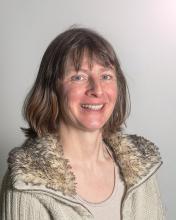From HPC-Europa3 to Huawei Programming Languages Research Laboratory
9 September 2021
Marcos Maroñas was an HPC-Europa3 visitor in 2019, when he was a PhD student at Barcelona Supercomputing Center (BSC). Marcos has now completed his PhD and recently relocated to Edinburgh – in the middle of the pandemic – to take up a new job. Here Marcos tells us how his career has developed.
I am a Software Researcher at Edinburgh’s Huawei Programming Languages Research Laboratory. I received my bachelor’s degree in Computer Science in 2015 and my MSc degree in Innovation and Research in Informatics, specialising in High Performance Computing and Computer Architecture, in 2017, both from Universitat Politècnica de Catalunya (UPC).
I joined the Programming Models Group of Barcelona Supercomputing Center in 2014, where I spent more than six years doing research which was mainly focused on parallel programming models. During my time at BSC, I worked on my PhD thesis “On the Design and Development of Programming Models for Exascale Systems”, and was awarded my PhD in 2021. In my thesis, I explored different innovative features that state-ofthe-art parallel programming models and their runtime systems should include in order to adapt to the future Exascale systems. I also explored new programming models that can ease the use of fault tolerance techniques, which will be crucial in Exascale Systems.
During my PhD, I was awarded an HPC-Europa3 grant to visit Dr Mark Bull at EPCC. Along with my supervisor Dr Vicenç Beltran, we were working on a new feature called worksharing tasks in the OmpSs-2 programming model (similar to OpenMP), and needed to benchmark it to understand its potential benefits. Dr Bull is a leading expert in benchmarking, author of several synthetic benchmark suites for OpenMP, hybrid OpenMP+MPI, and Java. As such, Dr Bull was the perfect person to help me with the benchmarking process, given his knowledge and experience. The project was a complete success, and culminated in a publication for a highly-reputed international conference [1].
However, for me the benefits of the programme were not just the opportunity to work with one of the most experienced experts in benchmarking, nor the boost this collaboration gave to my PhD thesis, but the doors that opened thanks to my stay in Edinburgh. I was contacted by Huawei to join its Programming Language Research Laboratory, and returned to Edinburgh in February 2021. Currently, my research in the Huawei PL Lab focuses on the design and development of innovative and exciting features for modern programming languages that can help bring Huawei’s products to a whole new level.
[1] M. Maroñas , X. Teruel, M. Bull, E. Ayguadé and V. Beltran, ”Evaluating Worksharing Tasks on Distributed Environments,” 2020 IEEE Cluster Conference (CLUSTER).

